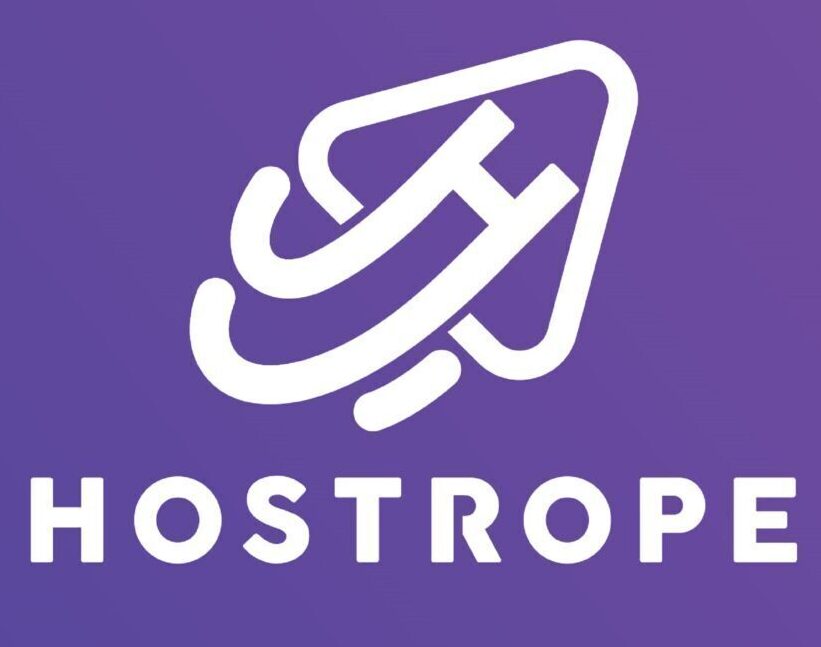Introduction
The HubSpot Marketing Hub Starter plan is an entry-level marketing automation tool, ideal for small businesses or individuals starting with inbound marketing. As part of HubSpot’s larger suite of marketing, sales, and service tools, this plan offers essential features to support basic lead generation, email marketing, and ad management. This review explores the core aspects of the HubSpot Marketing Hub Starter plan, its benefits and limitations, and its suitability for small marketing teams or businesses that want a straightforward, affordable solution to kick-start their digital marketing efforts.
HubSpot’s Marketing Ecosystem: Where Marketing Hub Starter Fits In
HubSpot’s Marketing Hub Starter is a part of HubSpot’s broader ecosystem of marketing, sales, and service tools. Each product within this suite integrates seamlessly, allowing for a streamlined workflow across the customer journey. HubSpot’s CRM, which is free, is an especially valuable tool for businesses on a budget and forms the core of HubSpot’s offerings. The Marketing Hub Starter plan provides the most essential tools from HubSpot’s marketing suite at an affordable entry price, catering primarily to businesses with modest digital marketing needs. Designed with an inbound marketing philosophy in mind, HubSpot emphasizes customer-focused marketing to attract, engage, and delight.
The Marketing Hub Starter’s goal is to help smaller teams or businesses begin their digital marketing journey without the complexities of more advanced plans. It focuses on email marketing, lead capture, basic ad management, and CRM integration, ensuring that all necessary components for an effective inbound strategy are available.
Key Features of HubSpot Marketing Hub Starter
1. Email Marketing and Basic Automation
Email marketing is the backbone of the HubSpot Marketing Hub Starter plan. It provides a drag-and-drop editor, so users can create branded, professional emails without needing advanced design skills. Here’s a deeper look into the email marketing functionalities:
- Pre-built Templates: HubSpot offers various email templates within the Starter plan, covering common marketing needs like product promotions, newsletters, and event announcements. Users can customize these templates to match their branding, though customization options are somewhat limited compared to HubSpot’s higher-tier plans.
- Personalization and Segmentation: Users can personalize emails based on customer data in HubSpot’s CRM, such as first names or recent interactions. Segmentation tools allow businesses to create audience segments based on customer behavior and engagement history, making it easier to send relevant messages to different groups within a subscriber list.
- Basic Automation: One of the main limitations of the Starter plan is its restricted automation capabilities. Users can set up simple automation, such as follow-up emails after a sign-up or purchase, but advanced workflow options are not available. This can limit the ability to scale email marketing efforts, making the Starter plan best for businesses with straightforward, one-step follow-up needs rather than complex, multi-step nurturing sequences.
2. Forms and Lead Capture
HubSpot’s forms in the Marketing Hub Starter plan are designed to help users capture and manage leads easily. These forms can be embedded directly on a website or used in HubSpot landing pages, making them flexible for various use cases. Key details:
- Customization: Users can customize forms with a range of fields to collect essential contact information, including names, emails, and more detailed responses. The forms can be branded to reflect the company’s identity, although more advanced styling is reserved for higher-tier plans.
- Integration with CRM: One of the most beneficial aspects of HubSpot’s forms is their automatic integration with HubSpot’s free CRM. When a visitor fills out a form, their information is immediately stored in the CRM, allowing for quick follow-ups and tracking. This integration ensures that no lead is overlooked, as all captured data is directly linked to contact profiles.
3. Ad Management and Tracking
The ad management feature in the Starter plan allows users to integrate HubSpot with their Google, Facebook, and LinkedIn ad accounts. While this feature is less extensive than HubSpot’s higher-tier ad management options, it still provides valuable insights into ad performance.
- Ad Platform Integration: Users can view basic ad metrics within HubSpot’s interface, tracking clicks, impressions, and conversions without leaving the platform. HubSpot’s integration also enables users to create custom audiences based on CRM data, so they can retarget existing contacts with ads on social media.
- Tracking and Attribution: HubSpot provides an overview of how many leads or contacts were generated by each ad, helping users understand the return on ad spend (ROAS). While the level of detail isn’t as high as in other advertising-focused tools, it’s adequate for small businesses looking to keep track of ad effectiveness.
4. Landing Page Builder
HubSpot’s landing page builder allows users to create custom pages for campaigns, promotions, or lead generation efforts. The tool provides basic design options suitable for small-scale marketing.
- Ease of Use: Like other tools in the Starter plan, the landing page builder is intuitive, with a drag-and-drop editor and pre-designed templates that make it easy to get started. No coding knowledge is required, and users can add forms, text, images, and CTA buttons.
- Basic Customization: While customization options are somewhat limited, users can adjust colors, fonts, and layouts to match their branding. However, for users looking to heavily customize or run A/B tests on landing pages, HubSpot’s higher-tier plans may be more suitable.
5. Integration with HubSpot CRM
The integration between the Marketing Hub Starter and HubSpot’s CRM is seamless, which is one of the plan’s most significant advantages.
- Contact Management: Every contact generated through email, ads, or forms is automatically saved in the CRM, ensuring businesses maintain accurate records of every lead and interaction. The CRM’s “Timeline” feature provides a view of each contact’s history, displaying emails opened, links clicked, and ads interacted with.
- Personalized Communication: The CRM’s segmentation features allow users to organize contacts based on behaviors, such as recent purchases or website visits. This segmentation can help personalize email campaigns or retargeting ads.
Advantages of Using HubSpot Marketing Hub Starter
1. Ease of Use
HubSpot’s user interface is intuitive and easy to navigate, making it accessible even for users who are new to marketing automation. The drag-and-drop editors for emails, forms, and landing pages make it simple to create visually appealing assets without a design background. HubSpot also offers extensive documentation, videos, and tutorials to guide users through setup and troubleshooting.
2. Affordable Entry Point for Small Businesses
Compared to more advanced marketing automation platforms, HubSpot’s Marketing Hub Starter is competitively priced. For a small monthly fee, businesses can access email marketing, lead capture forms, and basic ad tracking. This affordability makes it an attractive option for small businesses or individuals who want to start automating their marketing without a significant upfront investment.
3. Seamless CRM Integration
HubSpot’s CRM is a core strength, allowing for unified contact management and streamlined marketing. The integration between the CRM and Marketing Hub means that all marketing data, such as form submissions, ad clicks, and email engagement, is linked to contact records. This integration is particularly valuable for small businesses that may not have the resources for a full-scale customer data management system.
4. Reliable Customer Support and Resources
HubSpot offers robust customer support, which is essential for beginners or small businesses. In addition to direct support, HubSpot provides a wealth of educational resources through the HubSpot Academy, where users can access courses on inbound marketing, email marketing, and CRM setup.
Limitations and Challenges
1. Limited Automation Capabilities
While the Starter plan offers basic automation, such as follow-up emails, it lacks the advanced workflows available in HubSpot’s Professional and Enterprise plans. For businesses that need to nurture leads through complex, multi-step campaigns, the Starter plan’s limited automation may be insufficient.
2. Basic Reporting and Analytics
The reporting available in the Starter plan provides insights into email opens, clicks, and form submissions but doesn’t offer the more advanced, customizable reports found in HubSpot’s higher tiers. This can be a limitation for data-driven marketers who require granular insights.
3. Limited Customization for Landing Pages and Forms
The customization options for landing pages and forms are somewhat limited in the Starter plan, which can restrict users who want to create highly branded or interactive pages.
Ideal Use Cases for HubSpot Marketing Hub Starter
The HubSpot Marketing Hub Starter is best suited for small businesses or solopreneurs with straightforward marketing needs. It’s ideal for companies starting with inbound marketing or transitioning from manual marketing efforts to automated campaigns. Examples include small eCommerce businesses looking to engage customers through email, consultants collecting leads via forms, and startups running basic ad campaigns to increase brand awareness.
Pricing and Scalability
At approximately $20 per month, the Marketing Hub Starter is affordable for most small businesses. However, as companies grow, they may find it beneficial to upgrade to the Professional or Enterprise plans to access advanced automation, reporting, and customization options.
Conclusion
The HubSpot Marketing Hub Starter is a powerful yet simple tool for businesses new to digital marketing automation. With its essential features—email marketing, CRM integration, lead capture, and ad management—it provides a solid foundation for any business looking to grow its online presence. However, for more complex campaigns or in-depth analytics, HubSpot’s higher-tier plans may be worth exploring. For small businesses that need a straightforward, affordable solution to engage and nurture their leads, the Marketing Hub Starter is a great choice.










Howdy! This post could not be written any better! Reading this post reminds me of my previous room mate! He always kept talking about this. I will forward this page to him. Fairly certain he will have a good read. Thank you for sharing!